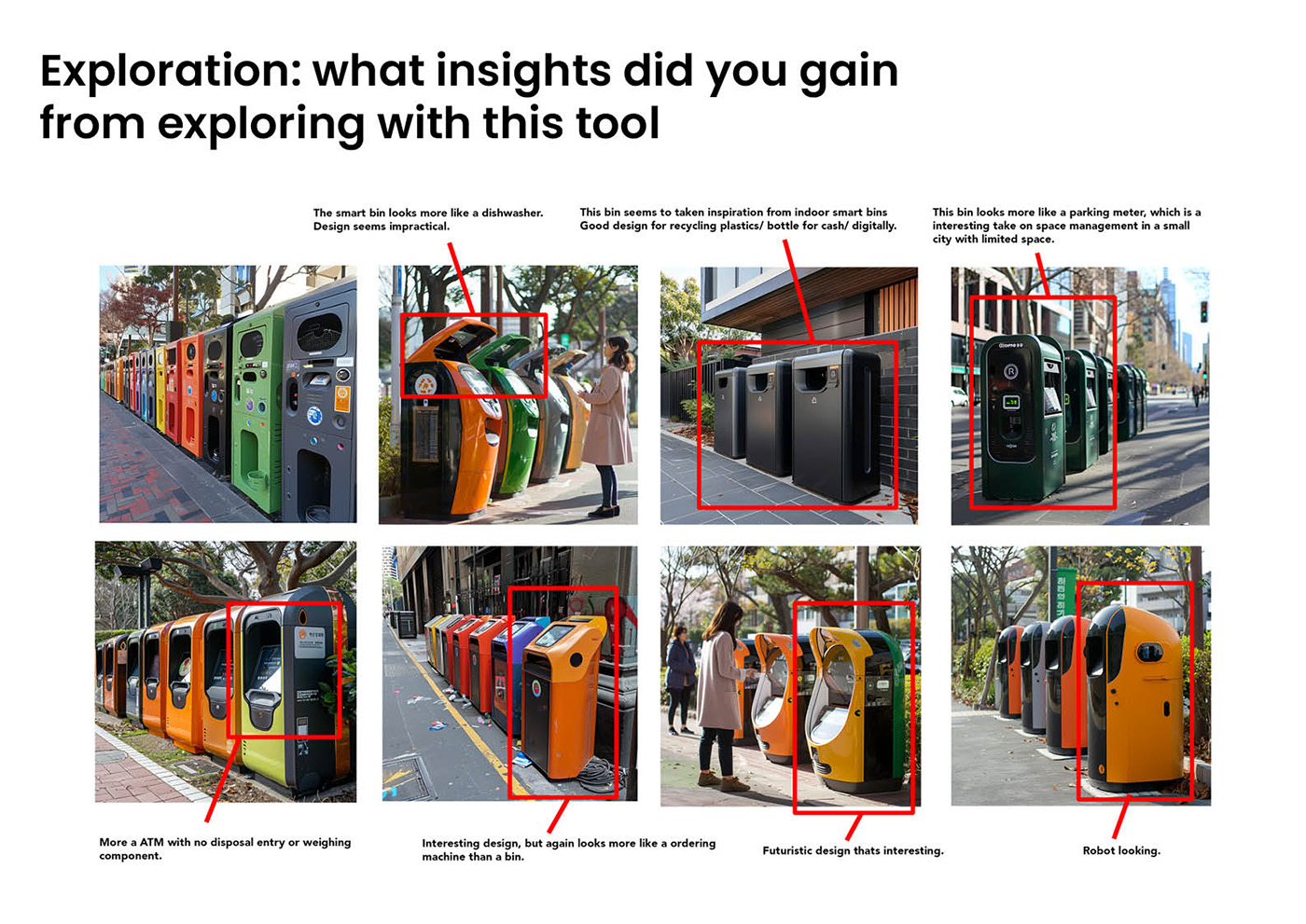
What factors influence the diverse approaches to recycling and rubbish disposal in different countries, with a particular focus on Korea and Australia?
Abstract
This research aims to identify unique aspects of both recycling methods in Australia and South Korea to explore the opportunity to blend the practices, fostering a more plurversal design approach, and ultimately creating new data for future projects to support the idea. By collecting data through desktop research, MidJourney will be used to create imagery of a blend of South Korean methods/recycling devices with Australian, backed up by the literature. These findings will be prototyped and analysed Prototypes will be further refined until a viable solution is reached. Finally, the prototypes will be tested and validated to ensure they are suitable for the Australian market.
Main discoveries of the research investigation
Plastic waste is produced in large quantities in Australia, but only a small fraction of this waste is recycled. Approximately 9.4% of the 3.4 million tonnes of plastics used in 2017-18 were recycled, highlighting a significant gap in resource utilisation. While the message of Reduce, Reuse, and Recycle resonates with consumers, there has been a growing demand for transparency regarding recycling and its environmental impact. Waste management accountability must be improved in light of increasing landfill charges and concerns about incineration without energy recovery. To increase recycling and reduce waste, governments and industry must collaborate to develop innovative solutions. Investing in infrastructure, encouraging product stewardship, and educating consumers on the importance of recycling are part of this process.
Nearly one million tonnes of packaging are available in the Australian marketplace, of which only a fraction is recovered and recycled, contributing to Australia's plastic waste problem. The Australian Government has set an ambitious target of 100% recyclable, compostable, or reusable packaging by 2025, managed by the Australian Packaging Covenant Organisation (APCO). There are, however, difficulties in achieving this goal due to the absence of mandatory requirements for manufacturers to prioritise recycled materials and their limited accountability for waste production. Furthermore, governments should provide incentives for businesses to adopt more sustainable practices. Also, governments need to set legally binding waste reduction targets and impose penalties on those who do not meet those targets.
The comprehensive waste management policies of South Korea, including mandatory recycling and extended producer responsibility, are noteworthy. To comply with the country's waste management system, known as “jongnyangje”, food waste, recyclables, and other items must be separated into colour-coded bags. A culture of adherence to recycling practices is cultivated through strict enforcement, which includes penalties for non-compliance and rewards for reporting violations. In addition, South Korea has invested significantly in advanced recycling technologies, resulting in a 95% recycling rate for industrial waste and a household recycling system that recycles approximately 60% of waste.
Both Australia and South Korea emphasise the importance of community-led initiatives to promote recycling and environmental sustainability. A program in Melbourne, Australia, enables recycling by offering a 10-cent refund for eligible drink containers. Through community-led recycling programs, South Korean communities demonstrate their commitment to shared responsibility and cultural values related to environmental sustainability. importance of international cooperation, as plastic waste, is a global issue that requires international collaboration to solve. Australia can learn from South Korea's example and apply its strategies to its waste management practices.
In summary, while Australia grapples with challenges in plastic waste management and strives towards ambitious recycling targets, South Korea sets an example with its robust waste management policies, advanced recycling technologies, and strong community engagement Both countries highlight the importance of accountability, innovation, and community involvement in achieving sustainable waste management practices. This demonstrates the importance of creating an environment-friendly mindset and fostering collaboration across sectors to ensure a sustainable future.



















